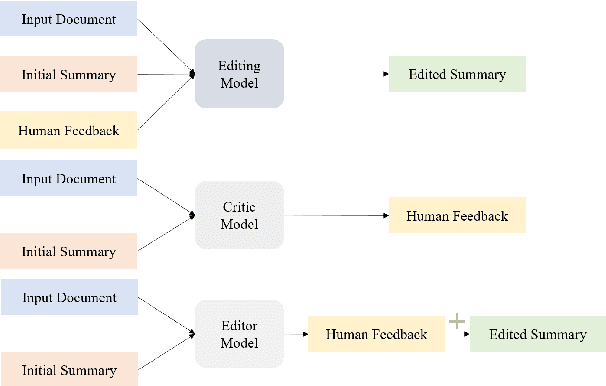On Improving Summarization Factual Consistency from Natural Language Feedback
Paper and Code
Dec 20, 2022



Despite the recent progress in language generation models, their outputs may not always meet user expectations. In this work, we study whether informational feedback in natural language can be leveraged to improve generation quality and user preference alignment. To this end, we consider factual consistency in summarization, the quality that the summary should only contain information supported by the input documents, for user preference alignment. We collect a high-quality dataset, DeFacto, containing human demonstrations and informational feedback in natural language consisting of corrective instructions, edited summaries, and explanations with respect to the factual consistency of the summary. Using our dataset, we study two natural language generation tasks: 1) editing a summary using the human feedback, and 2) generating human feedback from the original summary. Using the two tasks, we further evaluate if models can automatically correct factual inconsistencies in generated summaries. We show that the human-edited summaries we collected are more factually consistent, and pre-trained language models can leverage our dataset to improve the factual consistency of original system-generated summaries in our proposed generation tasks. We make the DeFacto dataset publicly available at https://github.com/microsoft/DeFacto.
 Add to Chrome
Add to Chrome Add to Firefox
Add to Firefox Add to Edge
Add to Edge